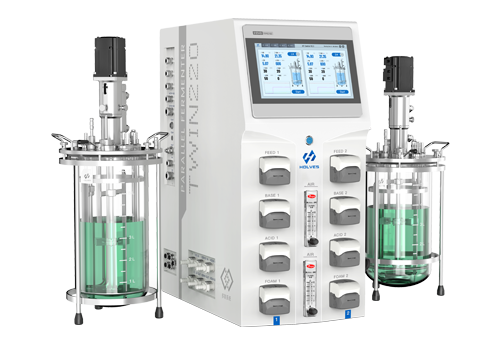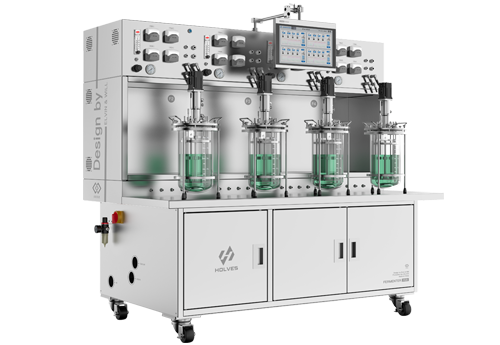This process is critical for industries such as pharmaceuticals, food and beverages, and bioenergy. Through controlled fermentation, we can efficiently produce these high-demand products on a large scale, which is essential for meeting global consumption needs.
It provides an ideal environment for the microbes to grow, metabolize nutrients, and produce the desired products.
Fermenters are equipped with systems to monitor and regulate parameters such as temperature, pH, oxygen levels, and agitation to ensure optimal growth conditions for the microorganisms and maximize production efficiency.

These systems include sensors, actuators, and software that continuously monitor and adjust variables such as pH, temperature, dissolved oxygen, and nutrient concentrations.
By precisely controlling these parameters, the fermentation process can be optimized, leading to higher yields, shorter production times, and improved product quality.

This opens up possibilities for new applications, such as the production of complex bio-based products, pharmaceuticals, and sustainable chemicals at a commercial scale. Additionally, with better process monitoring and control, businesses can reduce waste, lower carbon footprints, and improve sustainability in their operations.
More questions to solve?
More Questions
More Questions
[VIRTUAL Address] HOLVES Su310 intelligent stainless steel fermenter is a new generation of pilot and small-scale production equipment, integrating hardware innovation and intelligent control. In the pharmaceutical industry, stainless steel fermenters are crucial for produ...
[Ceramic Membrane Filtration] Ceramic membrane filtration is a physical separation process that uses ceramic materials with porous structures to separate particles, microorganisms, and dissolved substances from liquids....
[Tangential Flow Filtration] The Application of Tangential Flow Filtration Cassettes...
[Four-Piston Diaphragm Pumps] What is a Four-Piston Diaphragm Pump? How Does a Four-Piston Diaphragm Pump Work? What Are the Key Advantages of Four-Piston Diaphragm Pumps?...
[Photobioreactor] Photobioreactors are specialized cultivation systems designed to grow photosynthetic microorganisms such as microalgae, cyanobacteria, and other photosynthetic cells under controlled environmental conditions. Lab-scale photobioreactor systems serve as...
[Fermenters] Optimizing Fermenters for Enhanced Production...
[Bioreactors] Biological Reactions in Bioreactors: Advanced Solutions for Efficient Fermentation...
[Tangential Flow Filtration] Tangential Flow Filtration (TFF) is a separation process widely used in various industries, especially in biopharmaceutical manufacturing, water treatment, and chemical processes....
[Small Spray Dryers] Learn the Basics of Small Spray Dryers...
[Fermenter] You can find the answer to the question about fermenter feed supplement……...
